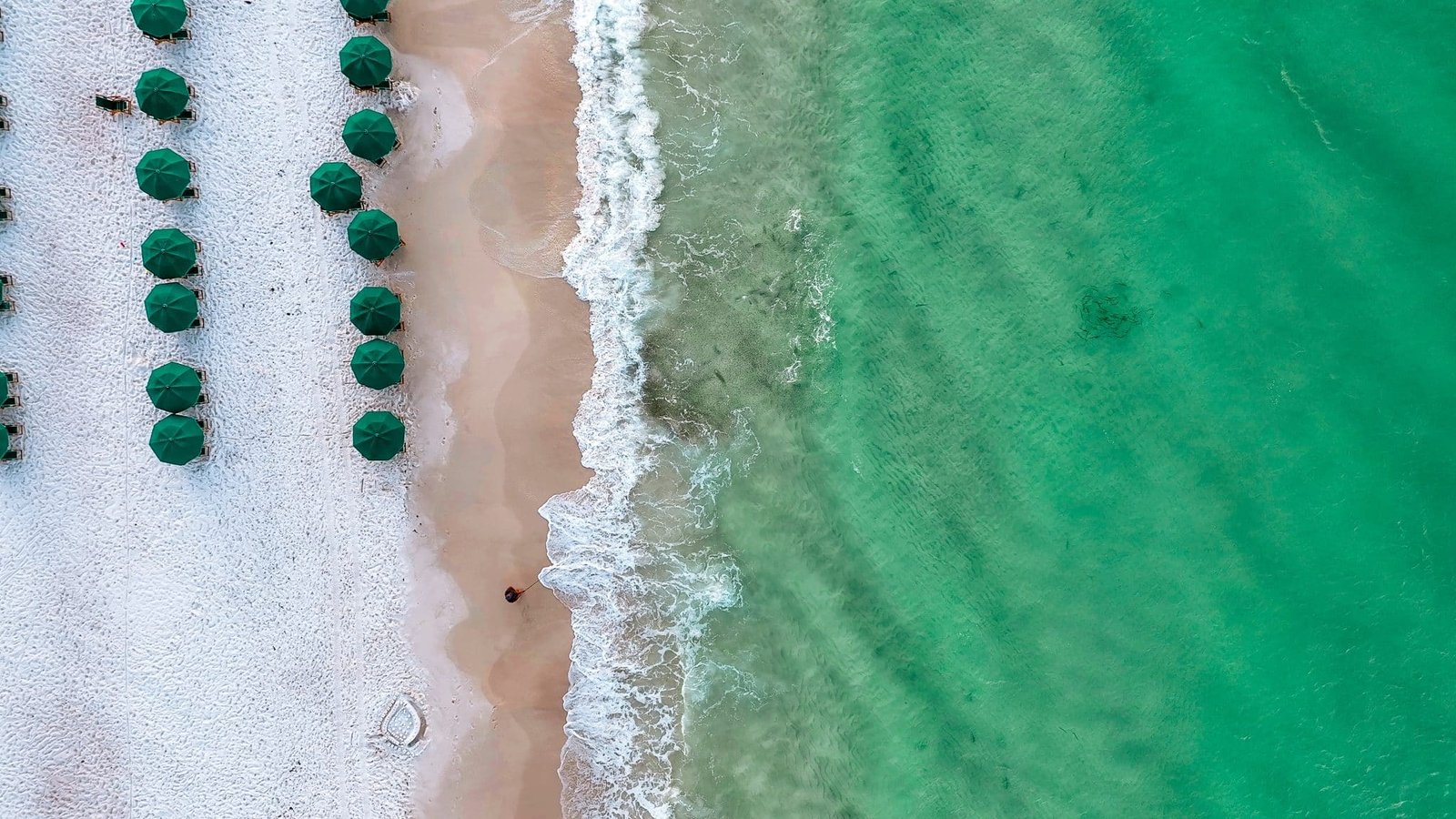Sharks in the Florida Keys: Attacks, Common Species, Staying Safe & More
|
Prefer listening over reading? We got you covered!
Getting your Trinity Audio player ready...
|
Visiting the Florida Keys is guaranteed to be a fantastic holiday. You’ll have the opportunity to fish, snorkel, scuba dive, and go boating across the 120 miles of islands that make up the stunning Florida Keys. However, spending so much time in the open water brings the possibility of unwelcome aquatic life, such as sharks. Many visitors to the area may wonder if there are sharks in the Florida Keys that they need to be worried about.
We know this area well, and review everything you need to know about sharks in the Florida Keys right here, so that your vacation is the most fun and relaxing experience possible.

Four Common Sharks In The Florida Keys You Could Come Across
The Florida Keys are an island chain located between the North Atlantic Ocean and the Gulf of Mexico, so it’s guaranteed that sharks are in the water.
While all sharks could be considered dangerous, not all are aggressive or big enough to pose a significant threat to humans. Your biggest issue will be how to identify different sharks; in most situations, you’ll just see “a shark,” or you’ll see a fin pop out of the water.
We’ll review the most common sharks you may see in the Florida Keys and then look at the most dangerous sharks. (Related: Key West or Key Largo: Which Should You Choose?).
1. Nurse Shark
Nurse sharks can grow to about 10 feet long and weigh hundreds of pounds. However, they’re not aggressive towards humans, so if you leave them alone, they will leave you alone. A big tell-tale sign that you’ve found a Nurse Shark is if the shark is not moving and appears to just be waiting on the ocean floor.
Nurse Shark attacks are extremely rare, and when they do happen to bite, it tends to not be powerful enough to be fatal. One downside is that the Nurse Shark can latch onto anybody it does bite and then needs to be cut away, though you shouldn’t try to do this yourself.
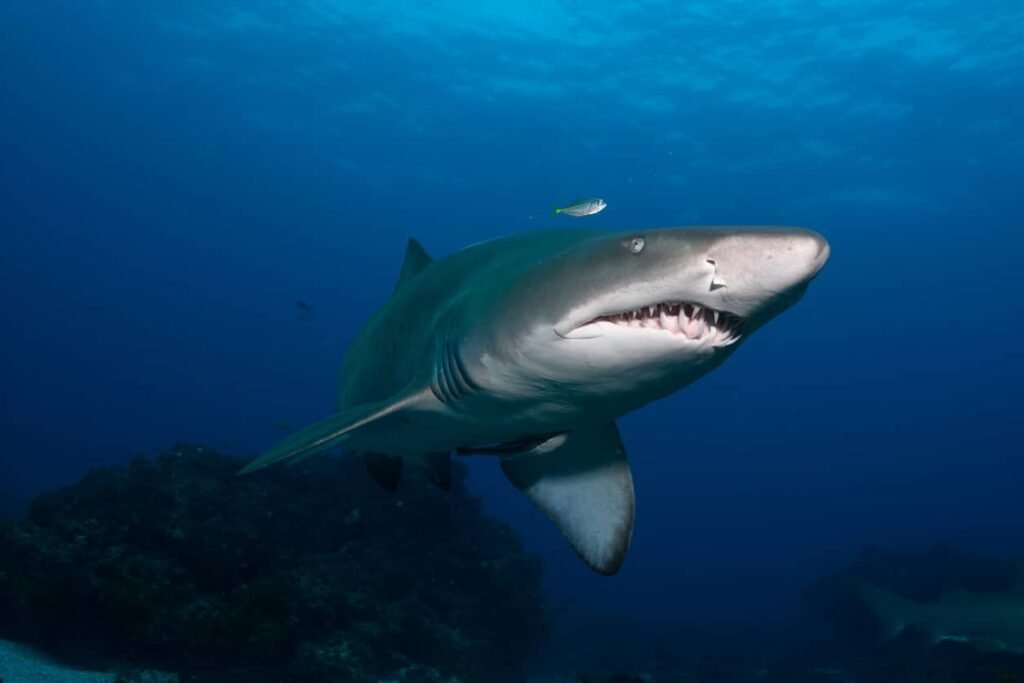
2. Lemon Shark
Lemon Sharks have a slight yellow color which is where they get their name from. They are one of the most common sharks you will find in the Florida Keys. They prefer to be in shallow water, so snorkelers or even swimmers could run across them.
While they’re large sharks, some as big as 500 lbs and 11 feet long, they are not interested in interacting with or causing problems for humans.
There have only ever been 11 recorded attacks worldwide on humans by lemon sharks, and none have been fatal.
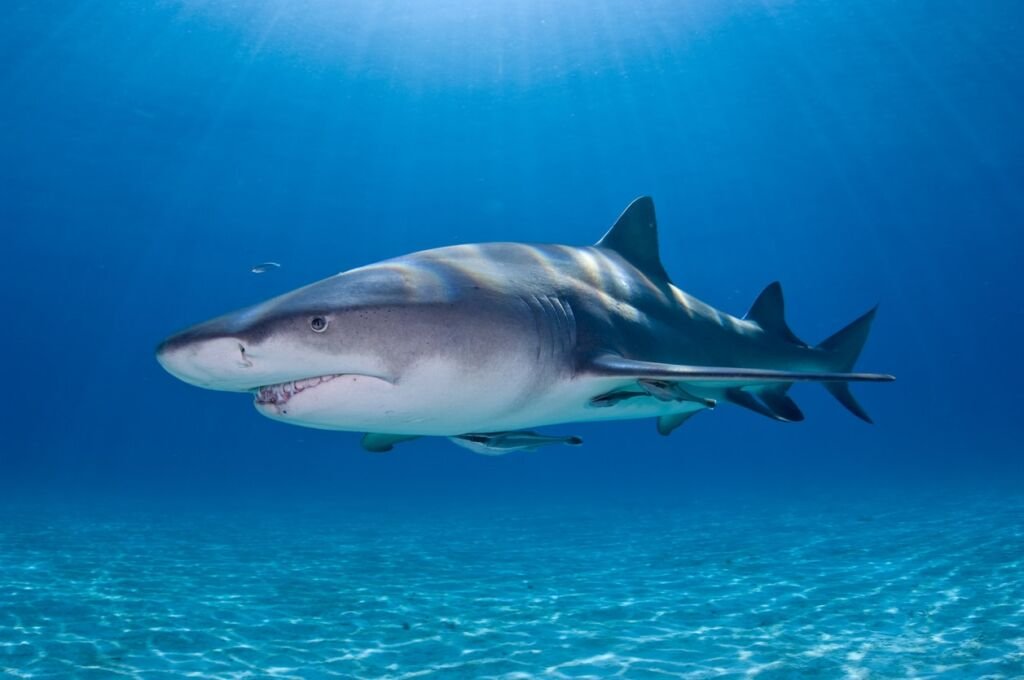
3. Blacktip Shark
Blacktip Sharks can be identified by the black tips on the ends of their fins. They prefer to swim in the shallow waters of the Florida Keys and grow to around 200 lbs and up to 8 feet long.
While you will most often find Blacktip Sharks in shallow waters around reefs, they have also been known to swim into river mouths, estuaries, and mangrove swamps.
There have been 42 recorded attacks on humans by Blacktip Sharks, and only one has been fatal.

4. Hammerhead Shark
Hammerhead Sharks get their name from their heads resembling a hammer, so they are very distinctive and easy to spot. They are another species of shark that prefers the shallow waters in the Florida Keys and will often be spotted near reefs.
You’ll find a variety of different Hammerheads, and they range in size, but all have the distinctive Hammerhead look.
Hammerheads are not especially dangerous to humans. There have been 17 recorded unprovoked attacks worldwide and no fatalities from this species of shark.
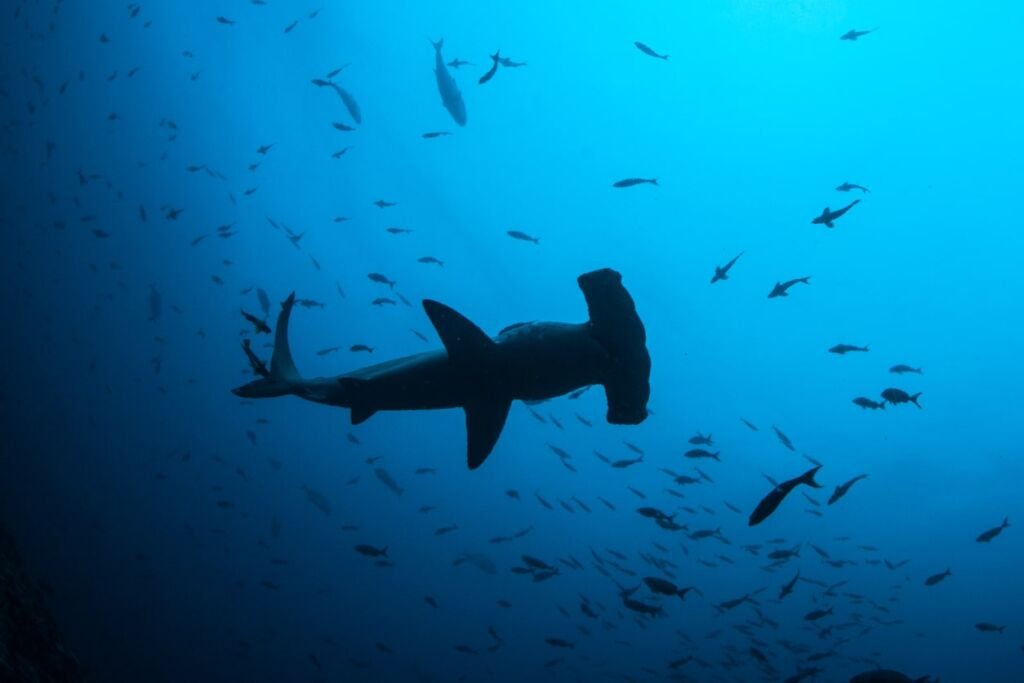
Five Dangerous Sharks In The Florida Keys That You Should Know
Sharks are dangerous but not necessarily hostile towards humans unless they’re being provoked. One of the most dangerous situations you can put yourself in with sharks in the Florida Keys is if you try fishing for them.
1. Bull Shark
Bull Sharks have a somewhat unique ability to thrive in both freshwater and saltwater, and they’ve even been found swimming in lakes. What’s concerning about the Bull Shark is that it’s one of the most aggressive sharks around and has been known to attack humans unprovoked.
A Bull Shark can grow to around 8 feet long and weigh up to 300 lbs. The females are slightly larger than the males.
Bull Sharks are extremely territorial, even towards humans. So if you enter its territory, you may be agitating the shark to the point of attacking you.
Worldwide the Bull Shark has attacked 121 humans unprovoked, which has resulted in 25 deaths.
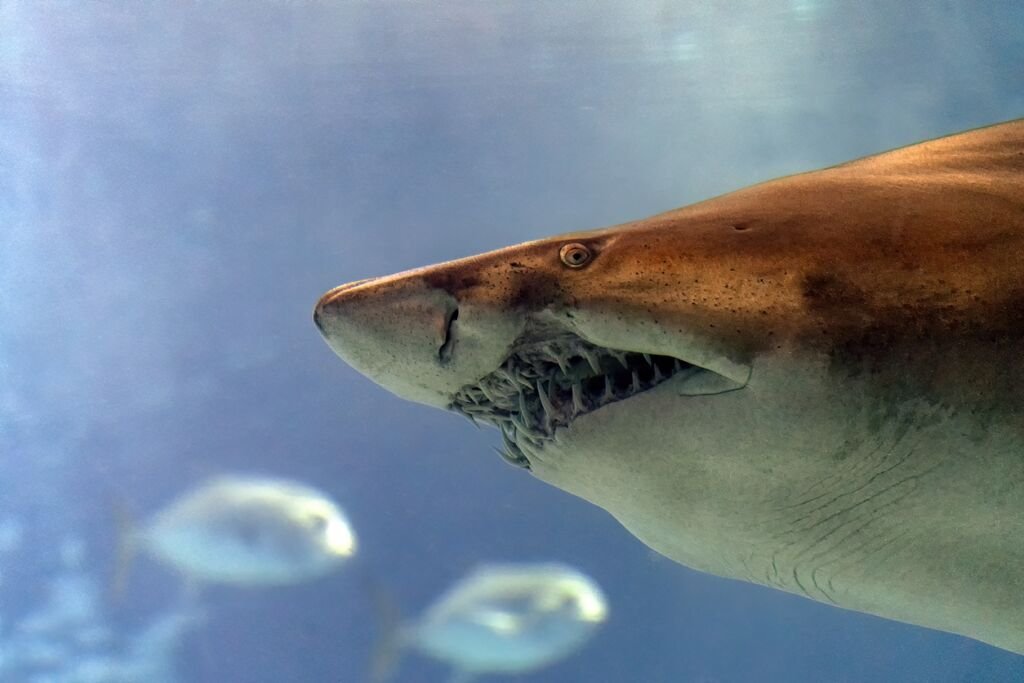
2. Spinner Shark
Spinner Sharks get their name from the fact they will spin, whether it’s through a school of fish or when they jump out of the water. So you will be able to tell this shark by that unique feature.
You can find this shark in deep open water, but it prefers shallow warm waters, so you may see one while you’re out in the water. The species has similar markings as the Blacktip Shark, so you’ll notice black tips on its fins.
The Spinner Shark does not see humans as prey. However, there have still been 17 non-fatal attacks attributed to them. Most often, this is due to a feeding frenzy where you get in the way of them eating.
3. Mako Shark
Mako Sharks are fast swimmers at 20 mph, but can burst up to 40 mph. No other shark is faster than the Mako. You won’t find these sharks in shallow waters, so it’s most often fishermen that encounter them. They can grow to 13 feet and up to 300 lbs.
The Mako has attacked eight humans with two fatalities; however, it is known to attack boats. Boat attacks by a Mako can go as far as sinking the boat, so they are very dangerous to humans.
Mako Sharks are a favorite of fishermen, which could account for why they’re so aggressive towards boats.
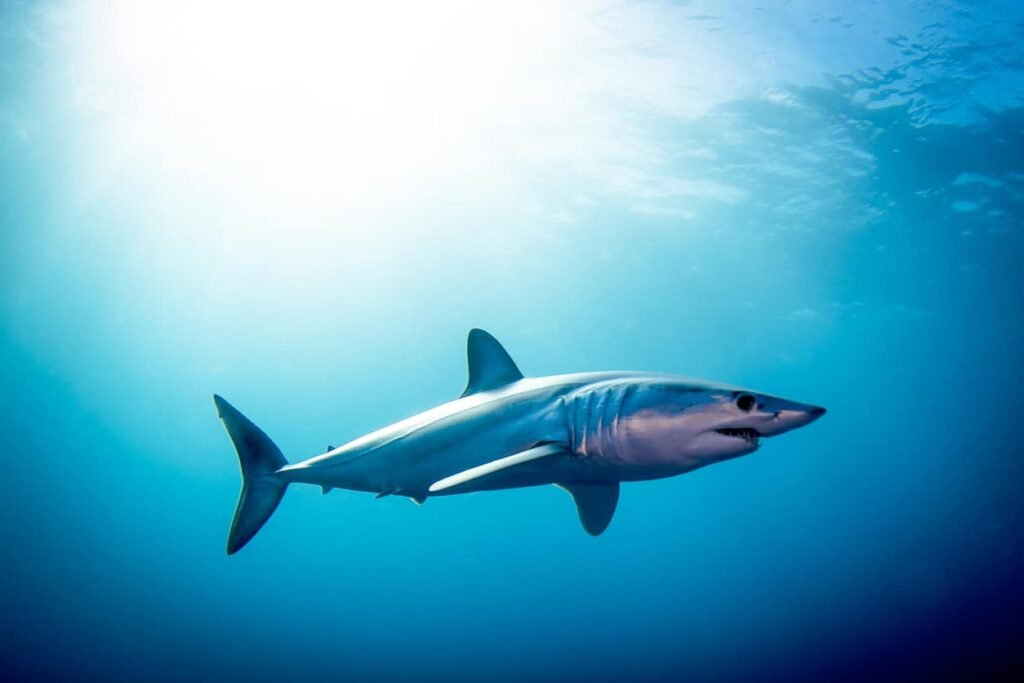
4. Tiger Shark
Tiger Sharks are big, and they are aggressive, reaching 24 feet long and 1400 lbs. They’re not fast but will eat almost anything that comes into their path, which is concerning as once they get you, they may not want to let go.
The Tiger Shark can be found in the open ocean and warm coastal waters, especially around river mouth openings.
Tiger Sharks are considered to be one of the most dangerous kinds of sharks to humans. Worldwide the Tiger Shark is responsible for 131 recorded unprovoked attacks and 34 fatalities.
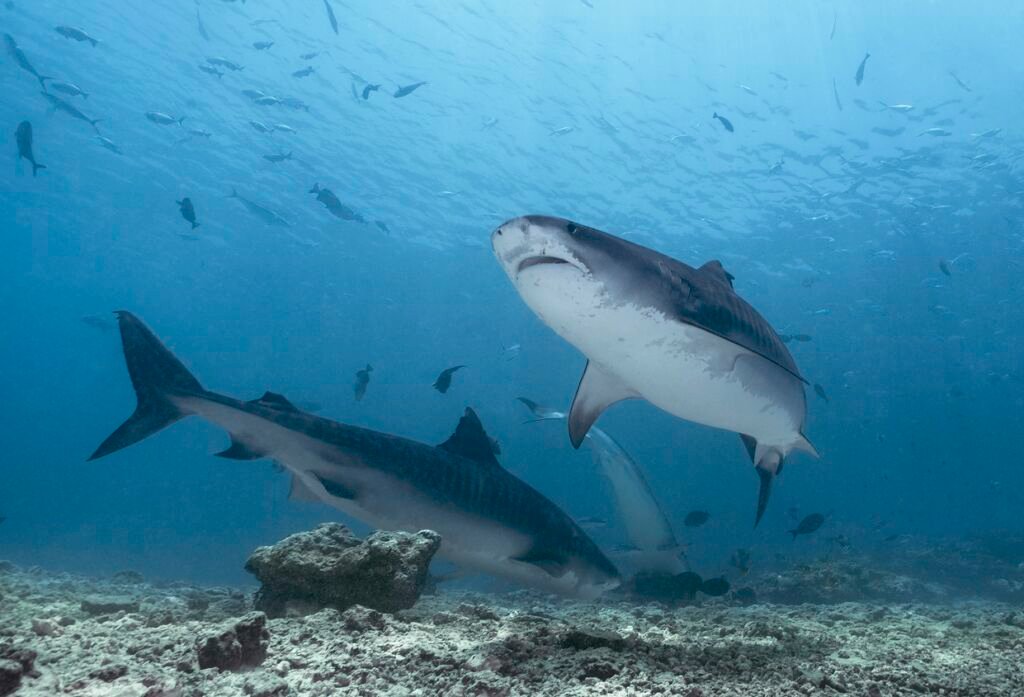
5. Great White Shark
You do sometimes get Great White Sharks in the Florida Keys, although they don’t inhabit the region. That’s because they they do visit the Keys on occasion, so a sighting of them is possible. If you weren’t aware, the movie Jaws revolves around Great White Sharks. These sharks can grow up to 20 feet long and be a massive 5000 lbs!
Great White Sharks don’t spend time in shallow waters, so swimmers don’t need to worry. However, surfers do as it’s believed younger Great White Sharks have sometimes mistaken surfers for seals and tried to eat them.
The Great White Shark is responsible for a recorded 333 unprovoked attacks on humans and at least 52 fatalities.
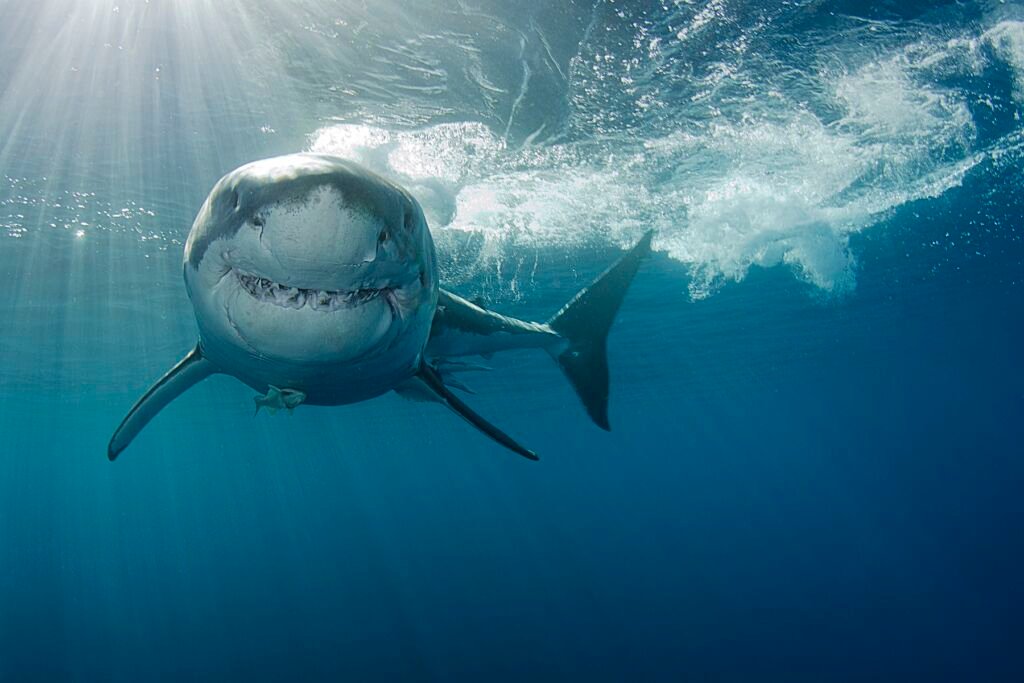
How Common are Shark Attacks in the Florida Keys?
Worldwide shark attacks are very rare, though Florida has topped the list of most shark attacks in recent years. However, even the most aggressive sharks aren’t really looking to attack humans. Instead, many of the attacks by sharks are due to provocation, especially from fishermen.
As one recent example, Florida had 16 unprovoked shark attacks in 2020, which accounted for 43% of all shark attacks in the United States that year. Not many of these shark attacks happened in the Florida Keys though.
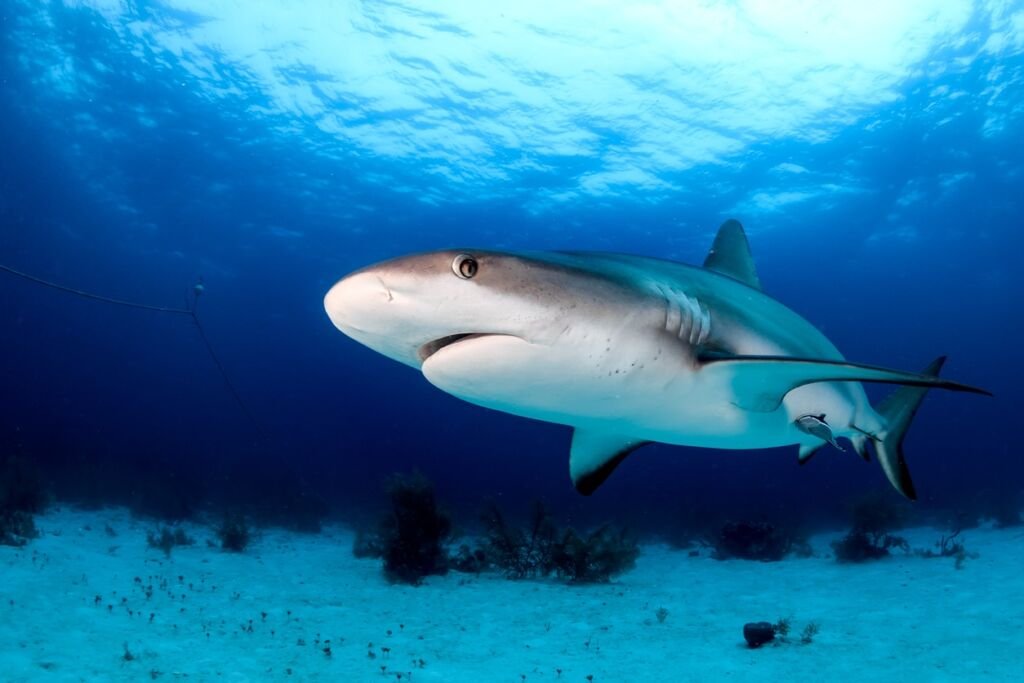
What Should You Do if You Come Across a Shark?
Stay calm and don’t flail your arms or legs around, as the thrashing can attract a shark to investigate to see if you’re food. By investigation, sharks will nibble on you to see what you are.
Keep eye contact with the shark if possible and slowly swim away from it. Try to stay vertical rather than horizontal when moving away from the shark.
How Do You Avoid Sharks in the Florida Keys?
Here are some top tips to avoid sharks in the Florida Keys.
- Avoid very murky water. Sharks won’t be able to tell what you are easily. This uncertainty can cause them to nibble on you to check what you are.
- Avoid swimming at night or when light is low, such as early morning or in the evening. This is when sharks are most active and looking for food.
- Avoid swimming near schools of fish as you could get caught as the shark tries to eat the fish.
Unlike some tourist spots you find in places like Australia, there are no shark nets to keep sharks away from beaches.

How Do You Treat a Shark Bite?
Most often, sharks are not trying to eat humans or even attack humans. However, they may mistake you for something else, and once they realize you’ll be let go. The amount of damage will vary, but your immediate concern will be to control blood loss.
- Get yourself or the victim out of the water.
- Put pressure on any other wounds and wrap with gauze, towels, or clothing.
- Elevate limbs if any have been bitten.
- If help is not coming or there will be a major delay, consider tying the wound off if it’s on a limb. You can use a belt, surfboard leash, or use a stretchy fabric and a stick to twist the material around the limb tightly.
This option is not ideal because you may stop the bleeding, but the limb may be lost and need amputation later. So it should only be used if absolutely necessary.
- Keep warm.
- Keep calm.
If possible, have someone immediately call 911. You can put your phone on speaker and talk to the operator while you’re addressing the wounds if needed.
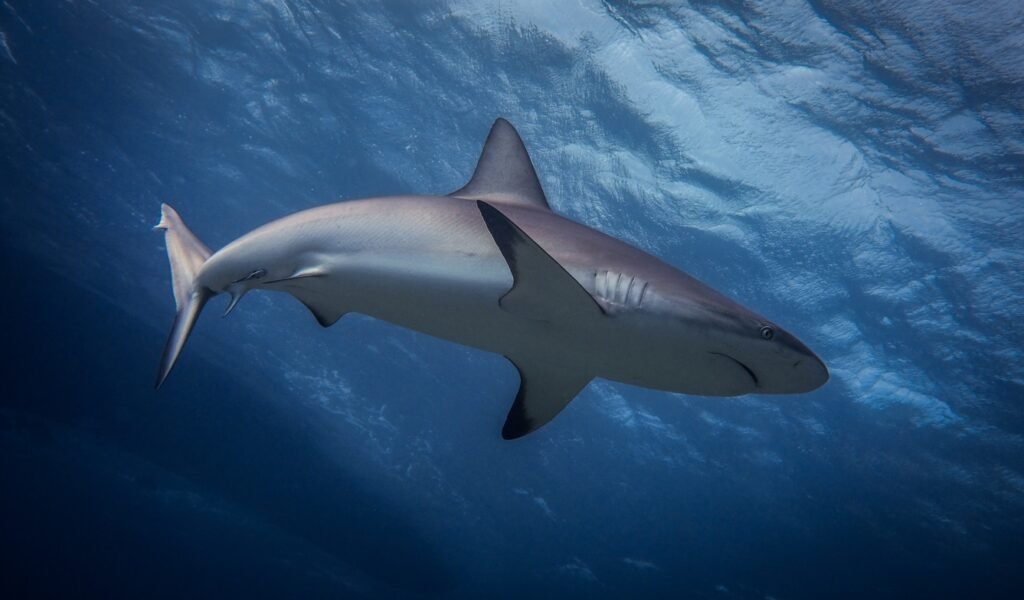
Our Final Thoughts
There are many sharks in the Florida Keys, and you may see some, especially if you’re diving or out fishing in deeper waters. The most dangerous situation you can put yourself in is by trying to catch a shark, as that is when they can become incredibly aggressive because you’re provoking them.
Swimmers will mostly be safe as sharks are not trying to interact or cause problems with people. Even if you’re seeing a shark close to the beach, it’s likely there to catch a stingray or jellyfish rather than come after a human, especially if you’re in a large group.








